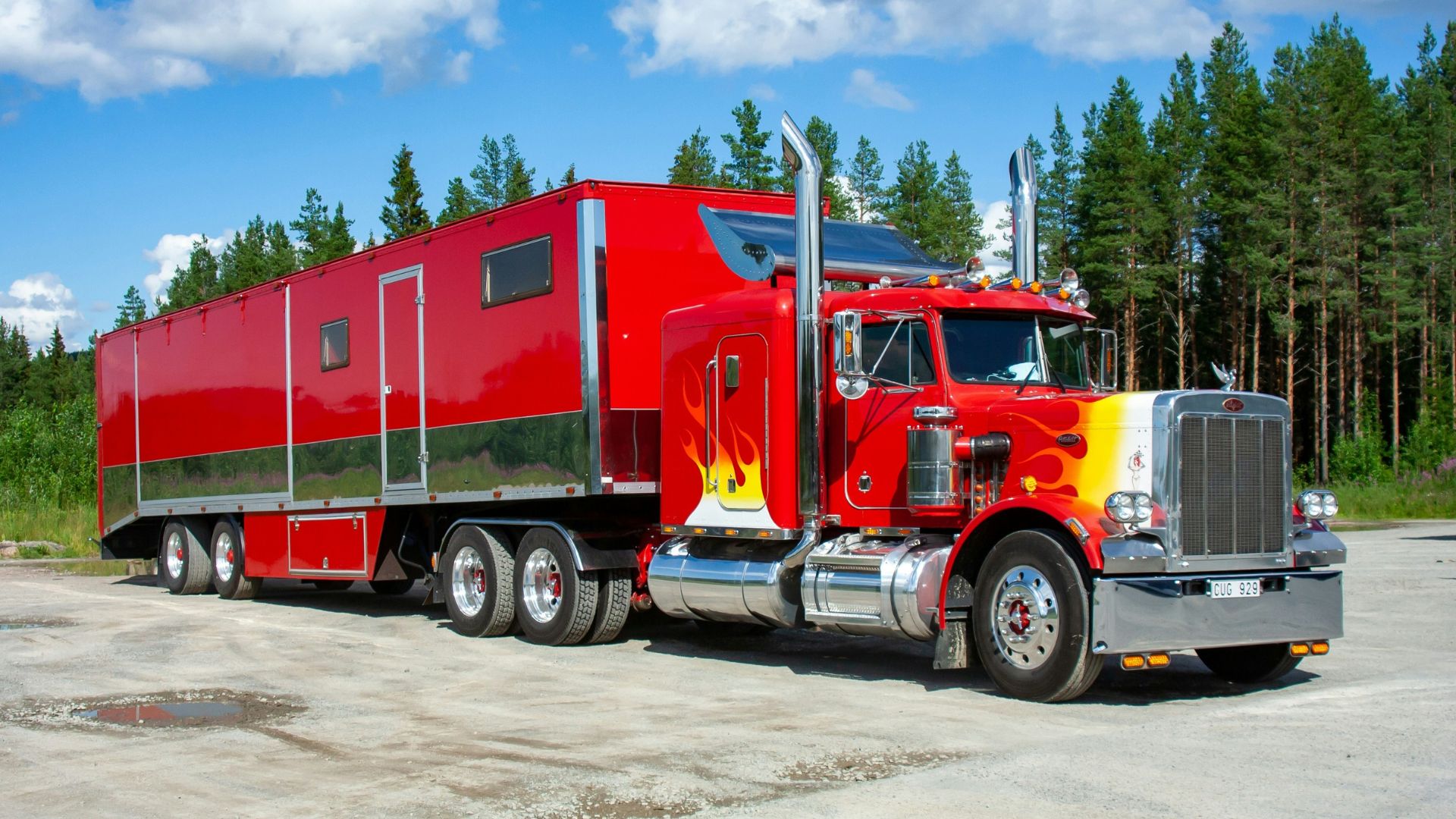5 Promising Sustainability Trends in the Trucking Industry

The pressure keeps mounting for more companies to adopt greener and more socially responsible business practices. Members of the trucking industry are no exception to this pressure. Admittedly, the trucking industry accounts for a tremendous carbon footprint. Thousands of trucks move coast to coast on a daily basis. They consume massive amounts of fuel and oil and emit hazardous pollutants like carbon dioxide into the air.
Beyond this, packaging and other aspects of the industry's practices lead to significant amounts of waste. All of this is proven to, in some way or form, find its way into landfills and oceans. The great news is that the trucking industry is making huge efforts towards cleaning up its act. It can currently be seen adopting greener and more socially beneficial practices across the board. Such practices prove beneficial for any company's bottom line. They're described as win-win-win events. This is because they benefit trucking businesses in addition to customers as well as the environment.
If you haven't quite wrapped your head around why the trucking sector should go green, you've landed on the right page. Through this post, you'll gain insight into the 5 most promising sustainability trends in the trucking industry today. Who knows - maybe you can implement some into your own trucking company? You'll gain access to the benefits of using more sustainable business practices.
Electric Commercial Vehicles
The developments in electric vehicle technology have extended an opportunity for its growth to change the world's commercial transportation industry. Projections assert that electric commercial vehicles will approach a level of cost-competitiveness equal to conventional vehicles. This will largely be due to reduced battery costs and the increased production volumes projected. Governments can be seen all over the world investing in EV infrastructure. They open up lucrative opportunities for OEMs to grow their business ventures and revenue.
At present, there are a few aspects slowing the electric commercial vehicle market's progress. These include the increasing cost needed for initiation, the costs of investment as well as maintenance.
Alternative Energy
Renewable energy sources and alternative fuels have caught the eyes of energy producers. This is mostly in response to the world's call for cleaner, more efficient, and cost-effective sources of power. The innovations in the market of alternative fuels help businesses lower the environmental impact of their gasoline- or diesel-powered trucks. Some companies strive to move away from fossil fuels entirely. This is a realistic aspiration as well. More trucking companies are adopting EV technologies as they become more accessible and reliable.
At present, biodiesel ranks as the most in-demand alternative fuel in the logistics and transport sector. Yet, the past few years show an even bigger adoption of commercial electric vehicles. The growing adoption of EVs and EV tech by trucking companies will result in much lower emissions across the industry. Everything from EV technology to hydrogen fuel cells and batteries is more accessible to trucking businesses now than ever.
Route Optimization
In the market of fleet management, few other technologies are in the same league as artificial intelligence. AI solutions in the trucking space allow users to effortlessly optimize and streamline logistics. Performance-wise, traditional methods fare poorly in comparison.
A number of methods are used to achieve this..
Many trucking companies, for example, are aware of the difficulty of optimizing a shipping route in real-time and on the go. It may seem simple to merely dial the coordinates onto a GPS and be on your way. However, route optimization goes beyond that. Its goal is to ensure commercial vehicles are actually following the most efficient route possible. The best route optimization AI allows trucking companies to update their drivers of any incoming delays on a certain route, which alternative routes to take, and at which speeds to drive in order to optimize fuel usage.
AI is a great tool for route optimization. It's a process that has proven very challenging for people. A dozen or so unique factors need to be considered all at once for the best route optimization technology. Anything from traffic delays to regional documentation requirements can all be quickly and accurately processed with AI.
Advanced Telematics and IoT
Telematics studies the benefits of machine-to-machine connectivity. IoT, or the internet of things, hones into the connectivity of machines to anything. When trucking companies combine the two technologies, they can collect invaluable real-time information about everything related to their fleets.
The use of this information empowers businesses to quickly gain insights into the availability of their vehicles, route statuses, and the behaviour of their drivers. In addition to all this, due to IoT enabling direct computing from devices, fleet managers gain the ability to speedily pick up and respond to fleet issues.
If the IoT sensors fitted on a vehicle reveal a sudden fluctuation in performance, the truck driver could be duly alerted immediately to inspect or make repairs to specific issues. This smart vehicle monitoring technology could save thousands of dollars on costly repairs.
Best and the right maintenance approach
Keeps Drivers Safe
The safety of any trucking company's drivers should be its top priority. It remains a crucial aspect of any fleet operation. Management needs to make sure all of the needed measures to minimize the risk of preventable road accidents are taken.
It is sad to report that the trucking industry is littered with preventable accidents from preventable causes. Worn tires, faulty brakes, blowouts, suspension issues are still far too common. Worst of all, such incidents can easily be remedied through prioritizing proper fleet maintenance.
Reduce Operational Cost
Despite what is said, preventive maintenance is considerably lower than reactive repairs—in fact, forking out the cash due to the repercussions of badly maintained fleet costs even more than both reactive and preventative repairs combined. Trucking business owners are coming around to the facts. Regular vehicle inspections done with the aim of identifying maintenance and repair issues before they become serious are essential. They help avoid undocumented downtimes and improve your fleet's life cycle.
The best approach to fleet management boosts productivity while managing the business's overall downtime.
Read our TMS Buyer's Guide
Navigate the TMS software landscape with our comprehensive buyer's guide - find the perfect platform for your trucking business today.

Latest From the Blog
Our Insights on Tech, Industry Trends, and News.

6 Benefits of a Rate Quote System in Your TMS

5 Benefits of Automated IFTA Reporting for Freight Carriers

